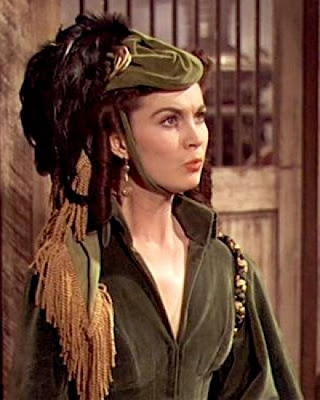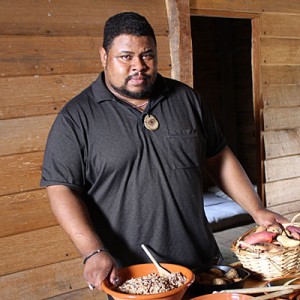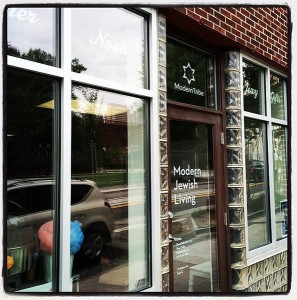[cross-posted from Connect Savannah]
 WHEN I was 10 or 11, summer in Arizona was horrendously boring and hot as hell.
WHEN I was 10 or 11, summer in Arizona was horrendously boring and hot as hell.
To keep me from burning holes in the pool furniture with a magnifying glass and O.D.ing on Days of Our Lives, my mother handed me the biggest book she could find: The paperback edition of Gone with the Wind looked like a brick and weighed about as much, and I dubiously hefted it onto my lap.
It took me all of a week to devour all 1,087 pages, love-hating spoiled Scarlett as I pined for Rhett and sobbed for Melanie. The burning of Atlanta seared my heart, and for years I fantasized about making a dress out of the Venetian blinds.
Between GWTW and repeated viewings of the adorable Myrtle Beach chick flick Shag at the local dollar theater, I formed some rath-uh romantic notions about the South in my youth.
By the time I met the surfer from Savannah who would become my husband, however, I had also acquired also a comprehensive liberal arts education that put me eye-to-eye with the true bloody history of the Civil War and the hard-earned legacy of the Civil Rights Movement, fermenting a passion for social equality and filling in the gaps of my imaginary petticoats. I married into the South with my eyes wide open, ready to embrace its complicated charms and difficult paradoxes.
As any wise person will tell you, marriage ain’t all about the romance, dahlin’.
As an outsider, I knew I’d never be considered a real Southerner no matter how deliciously I fry my okra (it’s all about the coconut oil, y’all). Such tacit acceptance has always been fine by me: As a Jewish hippie chick, I figured I was absolved from the past’s persistent evils, as though I could line dance and swill bourbon with the South’s fun-loving side and tiptoe away when it gets all blackout drunk and waves its guns around. I could be up to my earlobes in it, but not of it, so to speak.
I think that changed forever last week. We were at a wedding in upstate New York when the horrific shooting at Charleston’s Emanuel African Methodist Episcopal Church hit the news, ripping off the gauze on a wound that still seems to fester as deeply as it did 150 years ago. It can be argued that the South’s racial issues aren’t any more or less intense than the rest of the country’s—the most violent cases of racial unrest in modern history have taken place in the Midwest and Southern California—but slavery’s painful legacy remains embedded in its soil, in its history, in the heritage some of its citizens champion so fiercely.
I felt the backlash as we introduced ourselves to the other wedding guests and told them where we were from. There was an exception when one person asked excitedly, “Georgia? Did you see the zebras running through the streets?” I had to explain gently that last month’s flooding incident involving the escaped zoo animals actually took place in the country of Georgia, “like, near Russia.” She seemed very disappointed.
Mostly though, I watched eyes frost over warily, as if I was going to break out a Confederate flag bikini and an AK-47 and start spitting tobacco juice all over the furniture.
It was real strange to be judged as Southern. I mean, I did not put a boiled peanut in my mouth until I was well into my 30s. I birthed my babies in California with a doula and a bottle of Rescue Remedy. I was born in freaking New Jersey, for criminy’s sake.
Wait, y’all have got me all wrong! I wanted to shout. I am not responsible for this hot mess!
Instead, a surprise entered my heart: I found myself defending the South. Maybe I was just rebelling against the Yankee snarkiness that assumes everyone below the Mason-Dixon line has a double-digit IQ and a fried Twinkie in the glovebox. But I could not let my chosen home be reduced to the actions and attitudes of a few violent, inbred cockroaches.
Hackles raised, I spoke passionately about the joyful diversity of my kids’ public schools. I described the miles of forest and marsh, the kindness of strangers, the humble goodness of a paper plate of boiled shrimp caught in one’s own castnet.
Granted, I live in a lovely city with a racially-balanced city government, an organic farmers market and a thriving arts scene, a little bastion of progressive thinkers and educated transplants. It also helps that we’ve got The New York Times fawning all over Savannah like we’re the most covetable girl at the cotillion. (Three articles in two weeks? Any more of this courtin’, honey, and you’re gonna have to put a ring on it.)
Absolutely, Savannah is a precocious exception to the South that regularly sells out its natural resources to the highest bidder and still refuses to expand Medicaid benefits to millions under the Affordable Care Act no matter what SCOTUS says about subsidies.
This is the only South I know: One where for every Confederate flag on an F-350, there’s an Obama sticker on a Prius. Where there are more people authentically concerned and engaged with economic equality and social justice than any place I’ve ever lived.
The South I laud is the birthplace of Martin Luther King, Jr. and a seat of the national food justice movement. It is where, in the wake of horror and death, we stand up, link arms and march together, black, white, brown, young, old, straight, gay, trans, and everyone in between.
To this adopted daughter, being Southern is to own the good, the bad and the ugly and work for better. It’s a bittersweet row to hoe, which is probably why we put so much goddamn sugar in the tea.
The Confederacy’s been dead and gone a long time, and even the most delusional debutante must know deep in her bones that South ain’t rising again, no matter how much starch it put in its white hoodie.
But as God as my witness, how I do believe that this South, our South, can and will rise above the ignorance and the corruption, heal the wounds and show the rest of America what forgiveness, perserverance and gentility really mean.
And what will we do with all those retired flags?
Frankly, my dear, I don’t give a damn.



